The song “Time Slips,” from rapper-producer Navy Blue’s excellent new album Memoirs In Armour, released last week, manages to live up to its title. Over Zoom, Navy Blue, né Sage Elsesser, explains how the song was finished a while ago as part of a different project but only re-emerged for him recently. “I was like, ‘How did I just let this fall to the side?'” he recalls. “It’s a beautiful process. Being able to listen to old songs and then have them mixed and mastered and being like, ‘Oh my God, this is what could have been.'”
The entire project has a similar sensibility, as Navy Blue’s introspective ruminations find him retracing his own growth, filling in corners of emotional understanding with a clarity that only comes with time. Yet, incidentally, the album itself was made rather quickly. “I feel like it kind of came into fruition very recently, I’d say the last three months, a fairly quick turnaround,” he says. “Some of them are joints that I had for a while that I couldn’t quite figure out a home for — songs that I really liked. I’m happy that they finally found a home.” The record features some of Navy’s sharpest rapping to date, layered with intricacy and delivered with spacious, near-ambient timing. The music is thematically familiar — narratives about self-discovery and trauma bloom from the record’s dynamic and expansive production pallete — but with a new sense of clarity that manages to color the rapper’s past work in a new light.
The album is the follow-up to Navy’s major label debut, last year’s well-received Ways of Knowing, released on Def Jam. Navy released Memoirs In Armour independently, after he was dropped from the label earlier this year while he was wrapping up his second album. That record remains in limbo, but Navy says he’s grateful for his time at a major, and in a way made Memoirs In Armour as a means of returning to the way he’d prefer to create. “Making music has been therapeutic for me and it’s held in a very high regard to me. I don’t look at it as a thing like, ‘Oh, how can I make money off of this?’ It’s the one place that I feel that I get to show up authentically and let it all come out,” he says. “And I know that there’s kids in the world that this is all they’ve got, and I’m grateful that I have other things going on where I don’t need to rely on music to eat.”
Elsesser, a model and professional skateboarder, hopes to someday release the album he’d finished at Def Jam, but he also appreciates this current chapter in his life and work. In the newly released music video for album opener “Take Heed,” you get a sense of an artist undergoing a transformation, shaking off the tendrils of the past and embracing what comes next. A monochromatic, infrared beam splits the frame, revealing unseen textures beneath.
Navy Blue spoke to Rolling Stone about his new album, going independent, and what the future might hold.
How did you come to the title Memoirs In Armour?
It initially just came from the acronym M.I.A., “Missing in Action.” Because I was thinking, well, okay, people haven’t heard from me in a second. I just felt like sonically Ways of Knowing was very different than what my core fan base was used to. So I felt like, “Damn, I got to get back to that, me making joints on the couch and recording on the couch on my shitty mic.” And with these new ones, I’ve been really feeling like, “Wow, okay.” Something that, I had a conversation with Ka, and he always talks about, not always, but I had a conversation with him where he told me, “I record it on a good mic and I do it in a studio and have it mixed because I think the fans deserve the best quality of these songs.” I was like, “Huh, it’s true.” And I invested in getting a better mic. So I think that these sound a lot better than a lot of the other music I put out.
I really like the first song, “Take Heed.” I feel like that beat feels like the curtains opening in a way. And then those drums come in.
Yeah. It was a beautiful moment because I went and linked Budgie and he had moved into a new spot, and he was just playing me beats, and I was like, “Wow, this is really cool.” He was just playing me that loop, and he hadn’t necessarily added drums. It was kind of like, it felt cool having that song be the intro given that Budgie just produced my whole last album. But yeah, when I was initially going through different songs, there was so many different vibes that I was going for that I was trying to appease the listener.
But what I find is that when I make a very introspective album, like Post Panic!, my response to that is to make Navy’s Reprise where it’s drums and got more quote-unquote bangers or whatever with energy. And then I go back into like, “Ah, okay, now that I’ve done that, I have the freedom to do what I want.” And I started feeling that way. I was like, “Okay, I got to give them maybe some unreleased shit that I performed at the shows that I know that people like. But I was like, “You know what? What will it look like if I just do what I want to do?” And I think that the people that love my music, but trust me to put it together in a way that feels authentic to me, and I’m really happy for that because I knew this song, “Take Heed” has to be the intro. That’s how I want it to feel. I want it to feel like, “Oh, this is new and strange and I don’t really know what to think of this, but I’m glad you like it.
Yeah, the flow on that song too feels like it’s evolving.
Right. It feels like drill drums in a sense. I guess that comes from how inspired I am by my brother Thebe (Earl Sweatshirt). How often I’ve heard him kind of bend the rules and how you’re supposed to rap on certain songs. And I didn’t think about it when I heard Budgie make the beat in front of me, and I just started writing. And I think that that’s something that I’ve been working on a lot is — and it’s been kind of a staple for how I make music — which is just write until I complete the thought, and it’s I’m not thinking about necessarily the flow or something like that. I’m just like, “Let me complete my thought.” And if I don’t like the song at the end, then so it, I’ll make another one. And I try to not erase anything that I’m writing. I’m like, “Let me just honor what is coming through me.”
I also like the song “Basis,” because the loop on that one is particularly interesting, it’s almost like you’re in a live band there.
I will say [Producer] Child Actor is incredible. It’s crazy when you get a beat or you’re listening to a beat, sometimes you don’t really take into account the process of making that beat. And the other day he sent me the sample and I was like, “Are you kidding me? How did you even think to do that?” There’s so many chops. It’s very impressive how he made that. But yeah, funnily enough, that was one of the joints where I was like, “oh wow, okay.” I felt like I was doing something kind of new.
How did working on this album differ from Ways of Knowing?
I had another album that I’d been working on for the past like, honestly, while I was working on Ways of Knowing. So it’s been two years, almost three that I’ve been trying to make this other album. So my full attention was on that. It’s always hard for me to create if I’m not thinking about a project, like where is this going to live? So this one felt a little different. I was having a new experience with how I usually make albums, and it was beautiful because this one is kind of like the prelude to the album that I eventually want people to hear.
What was your experience with a major label like?
Yeah, I guess I’m grateful for that experience and I think naturally as a human, you look back on situations and you go, I wish things could be different, but I think that the universe or God or whatever people want to call it, I choose to call it God, it just had a different plan for me and there was just something to learn from this experience. Memoirs In Armour is in response to the fact that I got dropped from Def Jam kind of in a way that had me frustrated, to say the least. I have another album that’s complete that I worked really hard on, and I turned it in to the label and I got dropped in the middle of the clearances and all that stuff. So that album is kind of, I wouldn’t say being held hostage, it’s just, it’s murky water there because I’m not able to just take this album and give it to the audience. I don’t question the divine order of things. Like, “All right, this is how it was meant to be.” That was supposed to happen so I could make Memoirs In Armour. Of course, when it happened, I was frustrated. But with a little bit of time, I’m just like, “I’m not doing this on my time. Whenever that time is, then that’s the time that people will get it.” And it’s really cool because I get to now look at the songs that I’ve made currently and the time that I had making Memoirs In Armour. And I recently watched that movie, what’s the one where everybody got to be quiet with Lupita?
A Quiet Place?
Right. There was two of them, and then they made day one. So that’s the album that I had made. I was like, “Okay, that’s my version of the House of Dragons coming after Game of Thrones having its moment.” I don’t really want to spoil it, but when that time comes, it will all kind of make sense, and I feel like I’m grieving the things that I went through during that Song of Sage: Post Panic! era much differently. Like I’m having a new experience with my experiences. I’m seeing things differently than I saw them before. A lot of the feelings that I had, I had a lot of anger and frustration, and I’ve let a lot of that go. It’s still present and I get to honor it, but just in a different manner.
That’s kind of something that you can hear on the record. It feels like a coming-of-age story, but your late twenties versus coming of age into young adulthood, really seeing how flawed and messed up the systems you exist in are.
Exactly. I remember having a meeting with whomever I forget at Def Jam, and they asked me, “What do you want?” And I said, “I just want to inspire a kid that might be going through a hard time or speak about an experience that a kid might be having, and they might not have the words to express that.” I think they might be thinking of a response like, “I want a Grammy, I want a million dollars.” It’s like, it was never my concern. And I can understand how a system like that could clash with my beliefs. You know what I mean? it’s like an inner conflict that goes on. And I think it’s with everybody. I was actually just talking to someone about it, like systems and how we’re feeding the monster, but that monster is the one who has the money and the food, and so you’re kind of forced, you’re forced to be like, “All right, I’m going to take this job that I don’t enjoy because I got to eat and cook and I need housing.” You know what I mean?
Now that you’re at this new juncture with your career, what are you looking to do next? Are you looking to kind of figure out how to put that album out? Would you write another album in between?
I don’t know. I mean, I have tons of music. I have that album, but to be honest, I have part two of that album complete as well. So when I had finished that, I started working on the extension of that album. So who knows, I might wake up tomorrow, walk outside and get an idea and be like, “Oh, I should do something around that.” So who really knows? We’ll see.






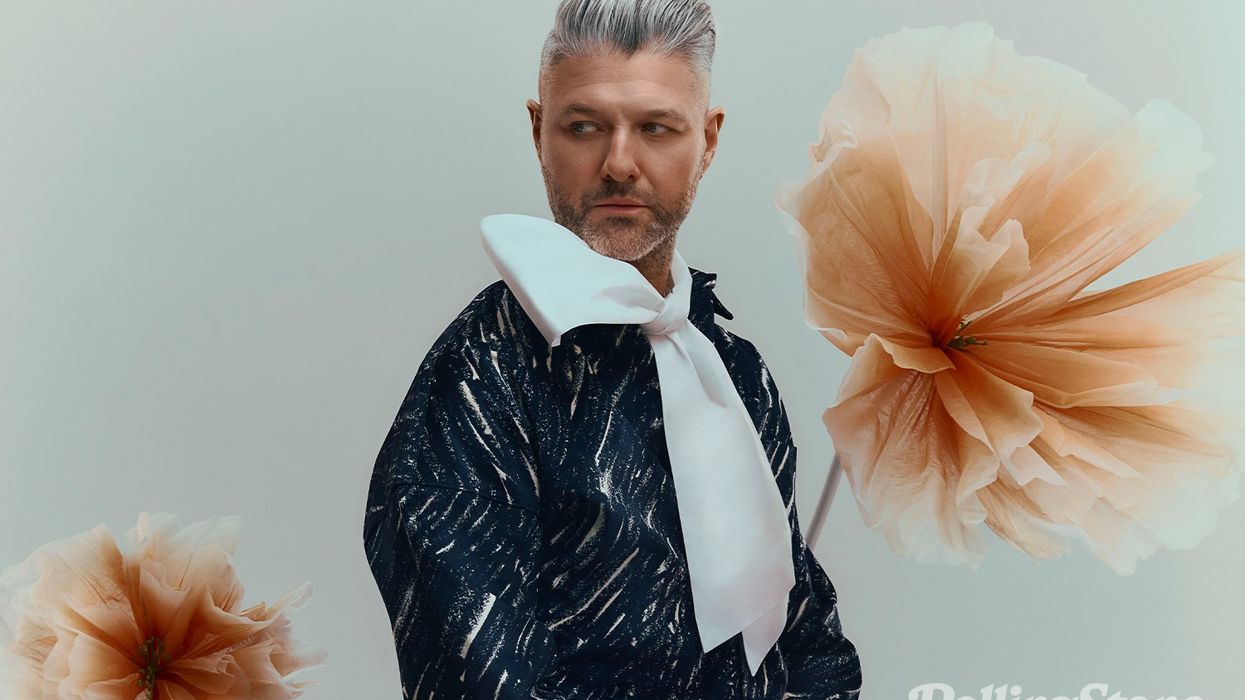
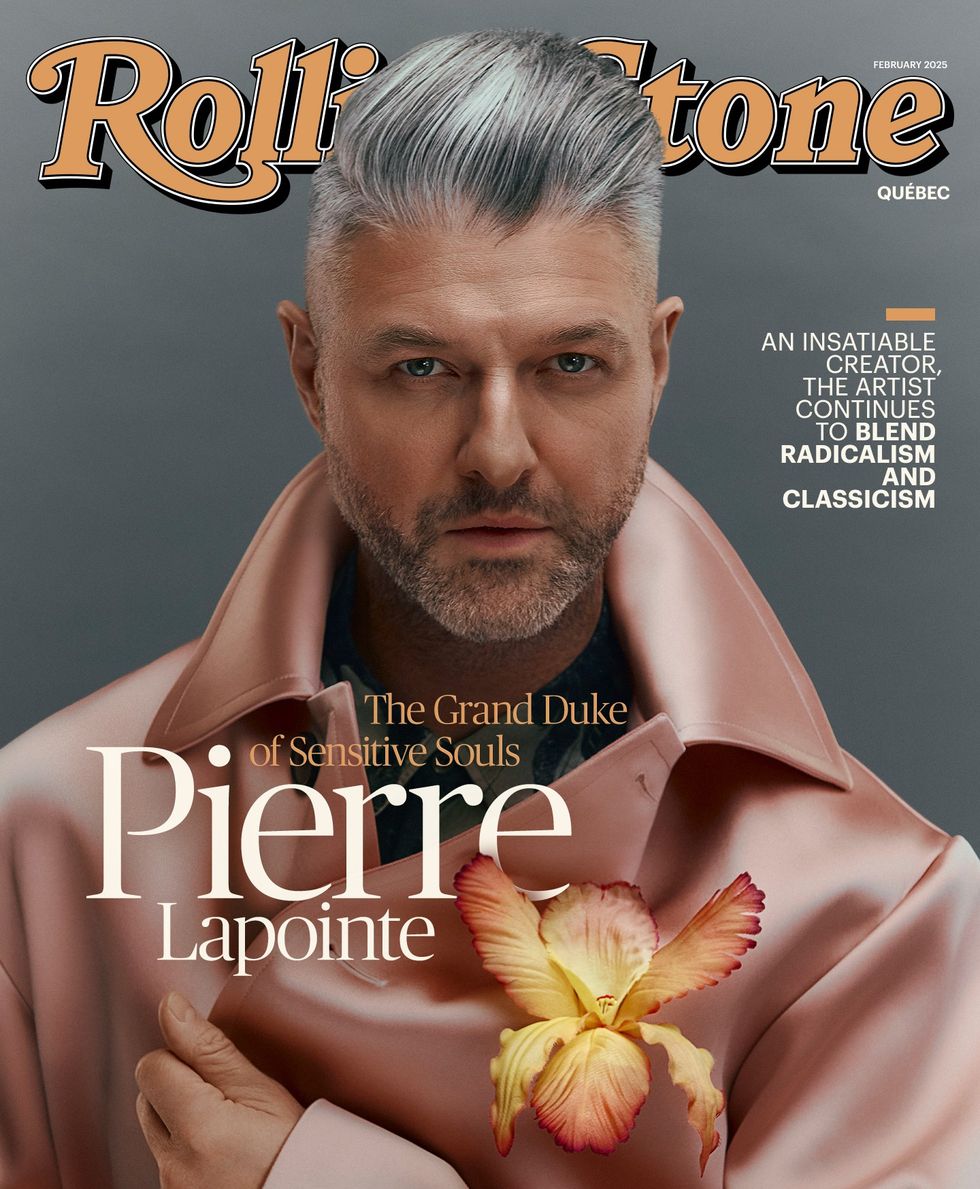 Coat (polyester and wool), shirt (silk), Dries Van Noten, SSENSE.com / Flower (silk), M&S Schmalberg
Coat (polyester and wool), shirt (silk), Dries Van Noten, SSENSE.com / Flower (silk), M&S Schmalberg
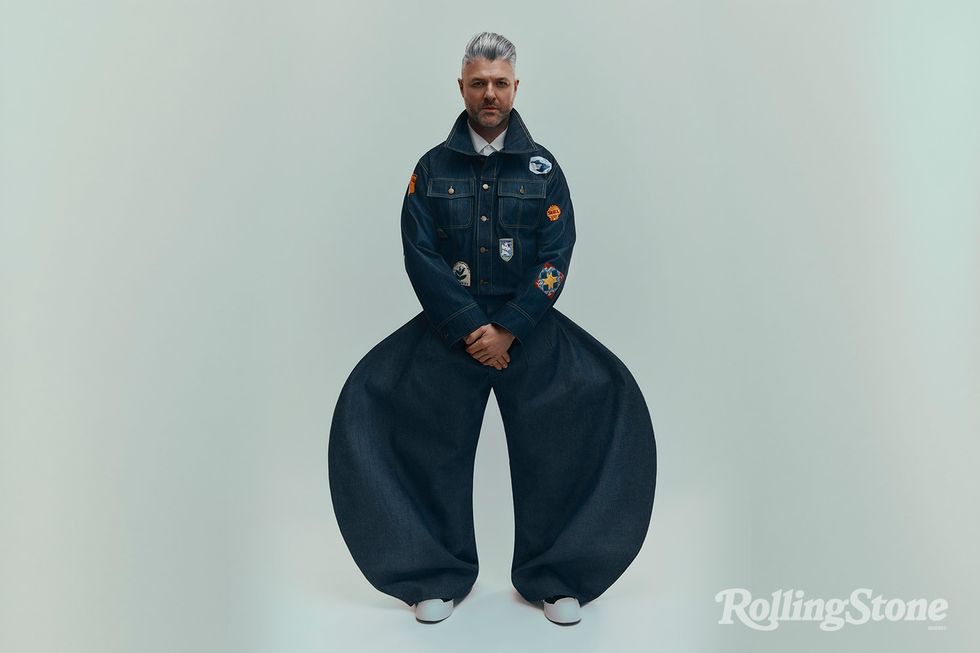 Blouson (denim and hand embroidered patches), WJ Crosson / Shit (polyester), Homme plissé Issey Miyake, Holt Renfrew/Pants from personal collection/ Shoes(canvas), Marni
Blouson (denim and hand embroidered patches), WJ Crosson / Shit (polyester), Homme plissé Issey Miyake, Holt Renfrew/Pants from personal collection/ Shoes(canvas), Marni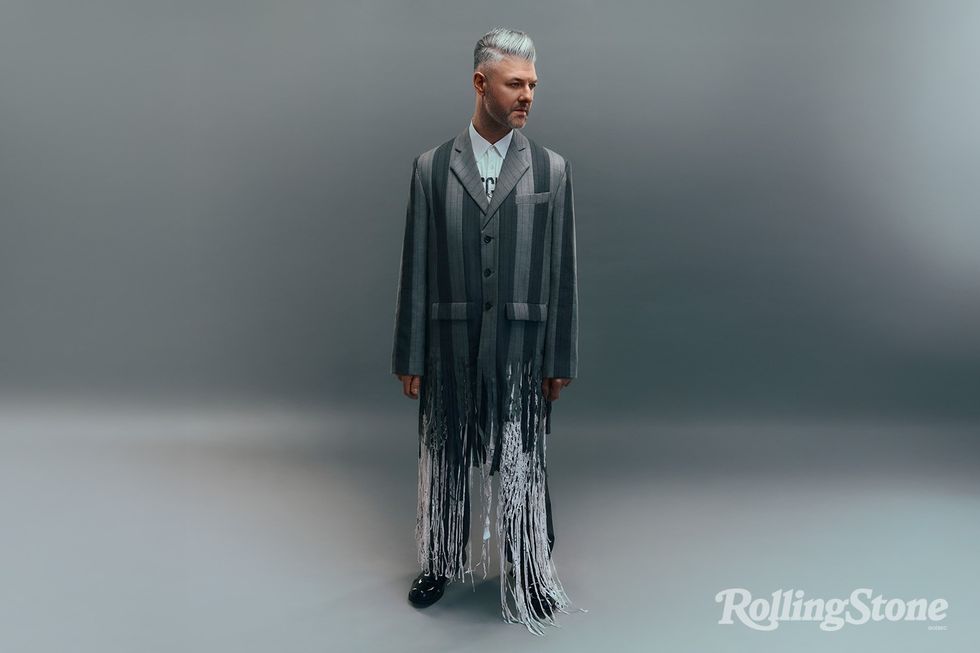 Jacket and pants (virgin wool), shirt (acrylic coated cotton), Moschino / Shoes from Pierre Lapointe's personal collection
Jacket and pants (virgin wool), shirt (acrylic coated cotton), Moschino / Shoes from Pierre Lapointe's personal collection
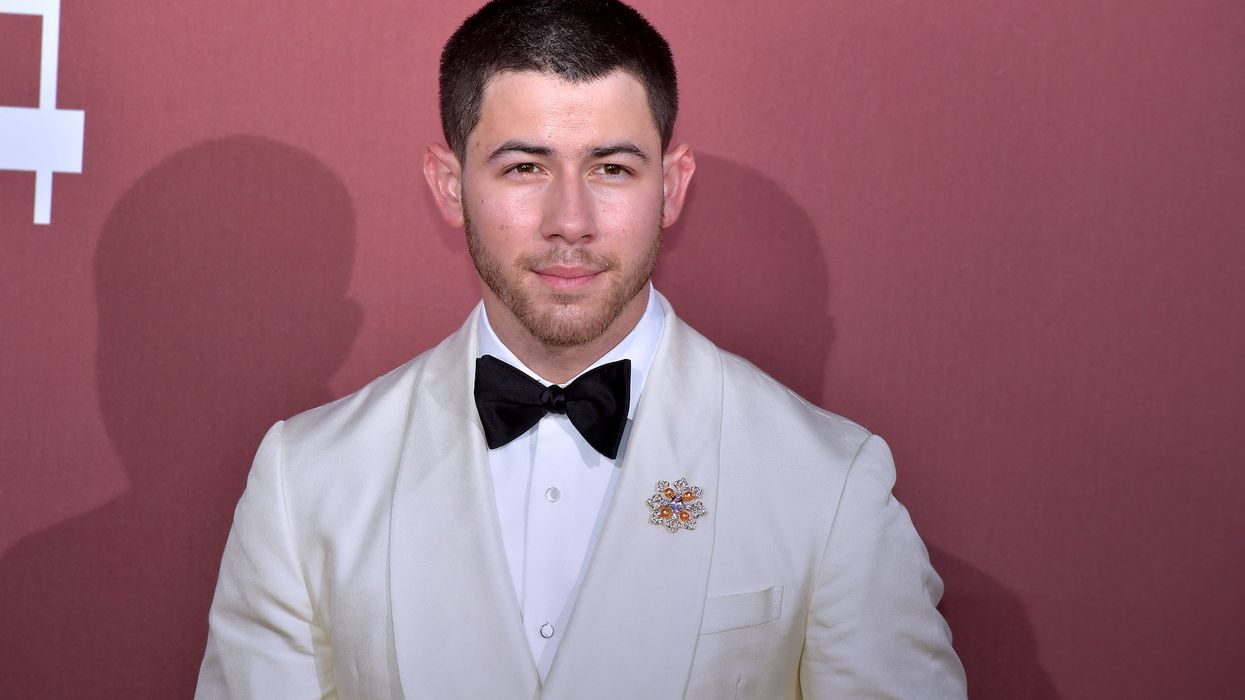


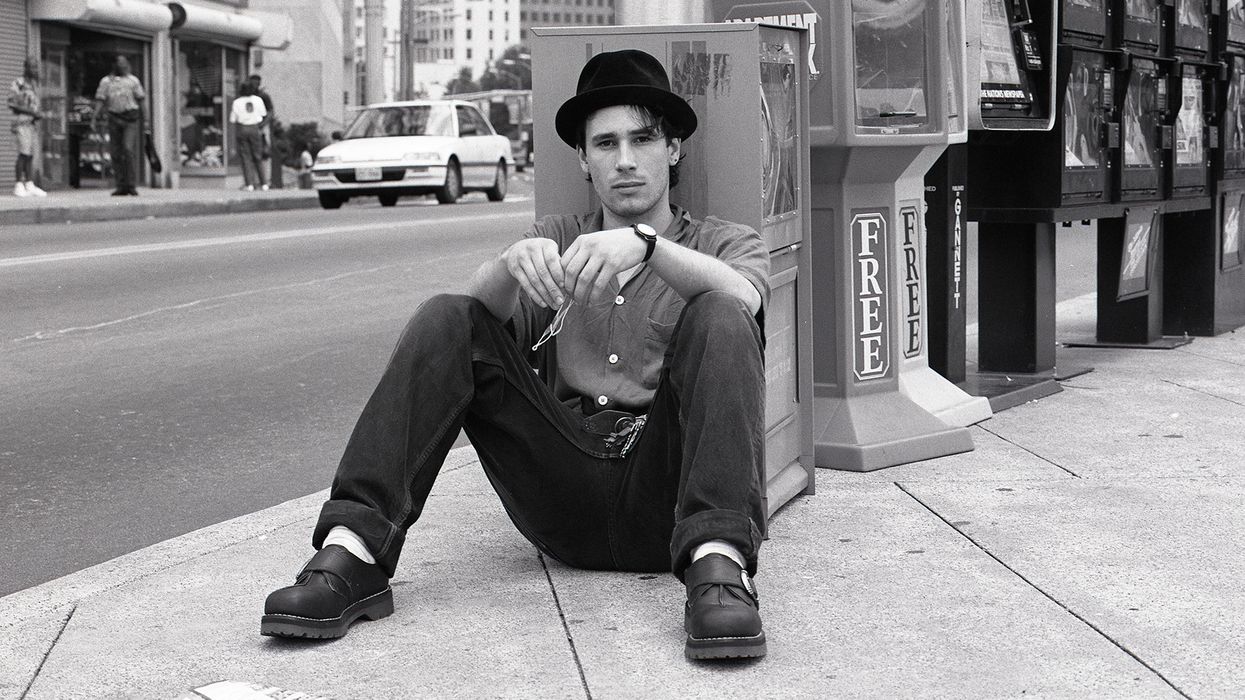
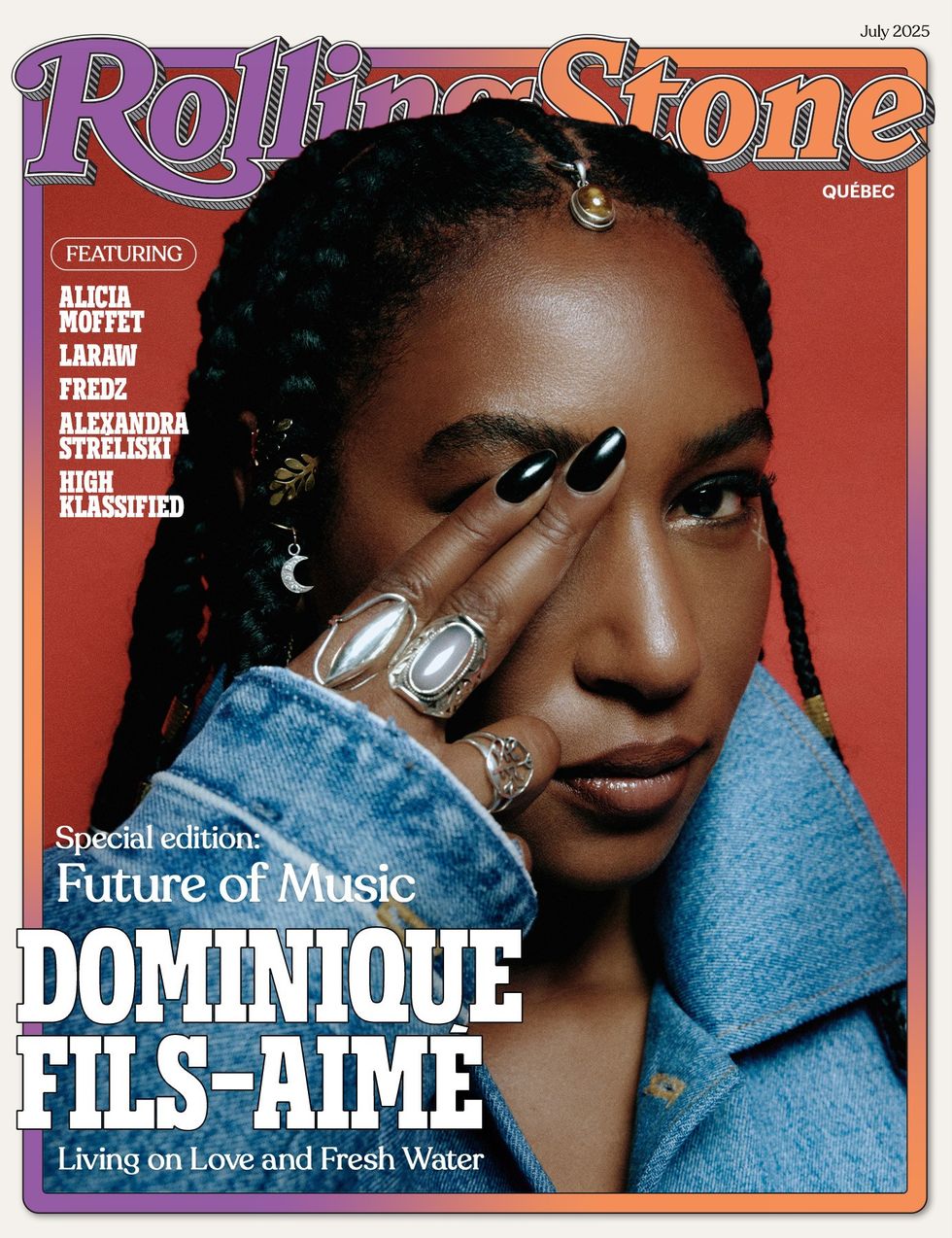 Jean Jacket: Repull/Jewelry: Personal collection
Jean Jacket: Repull/Jewelry: Personal collection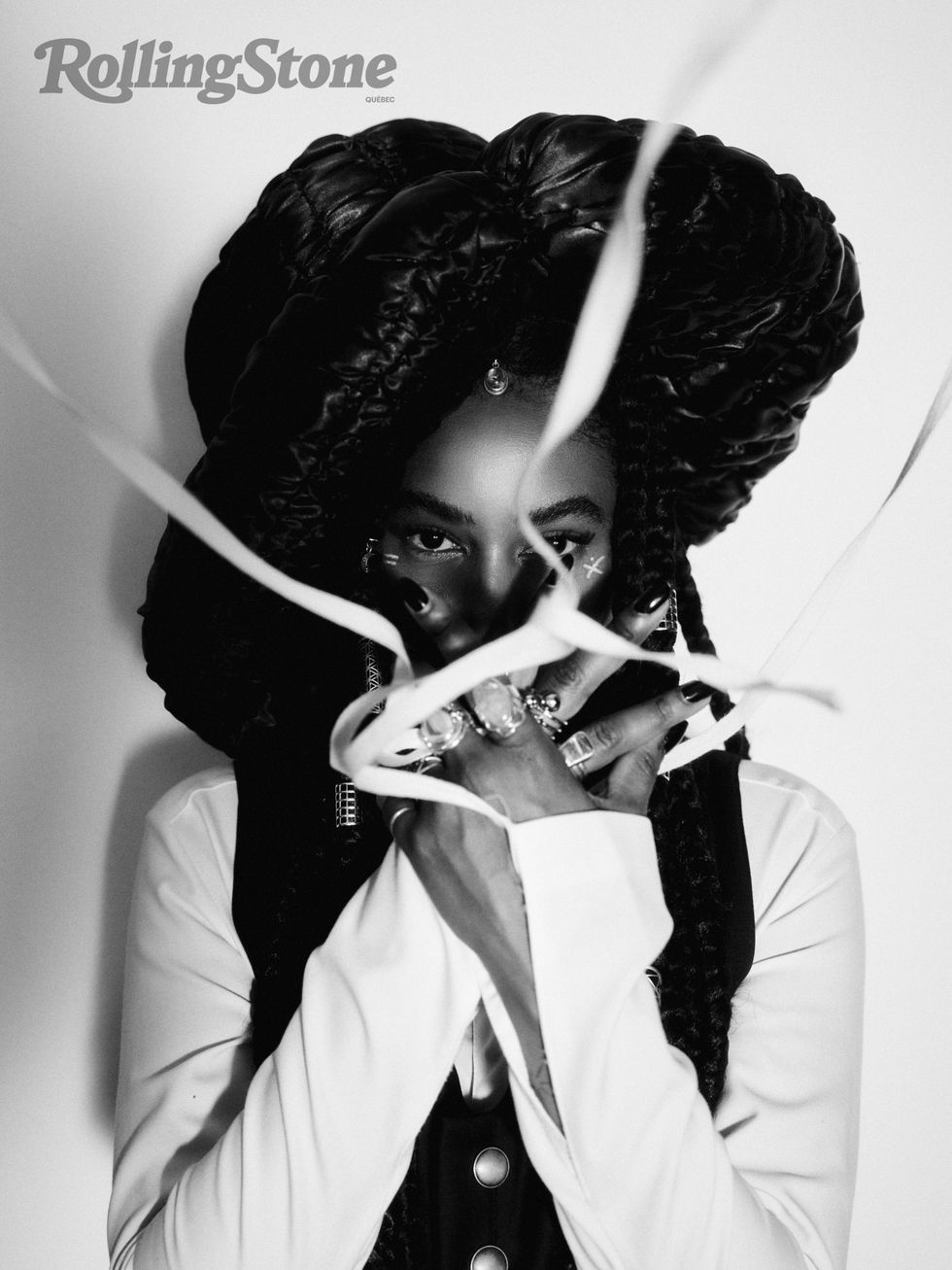 Hat: Xtinel/Dress shirt and vest: Raphael Viens/Jewelry: Personal Collection & So Stylé
Hat: Xtinel/Dress shirt and vest: Raphael Viens/Jewelry: Personal Collection & So Stylé 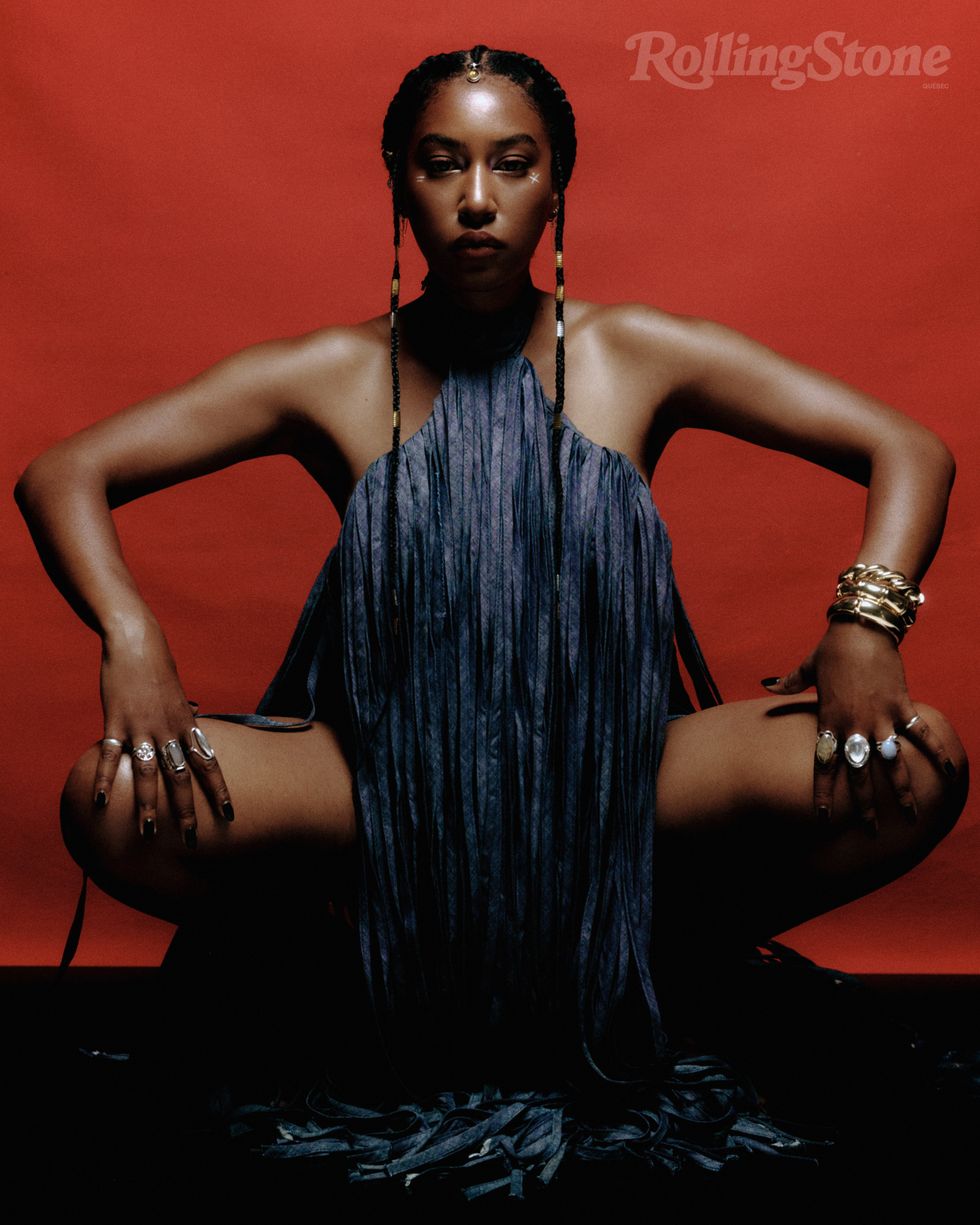 Dress: Helmer/Jewelry: Personal Collection
Dress: Helmer/Jewelry: Personal Collection 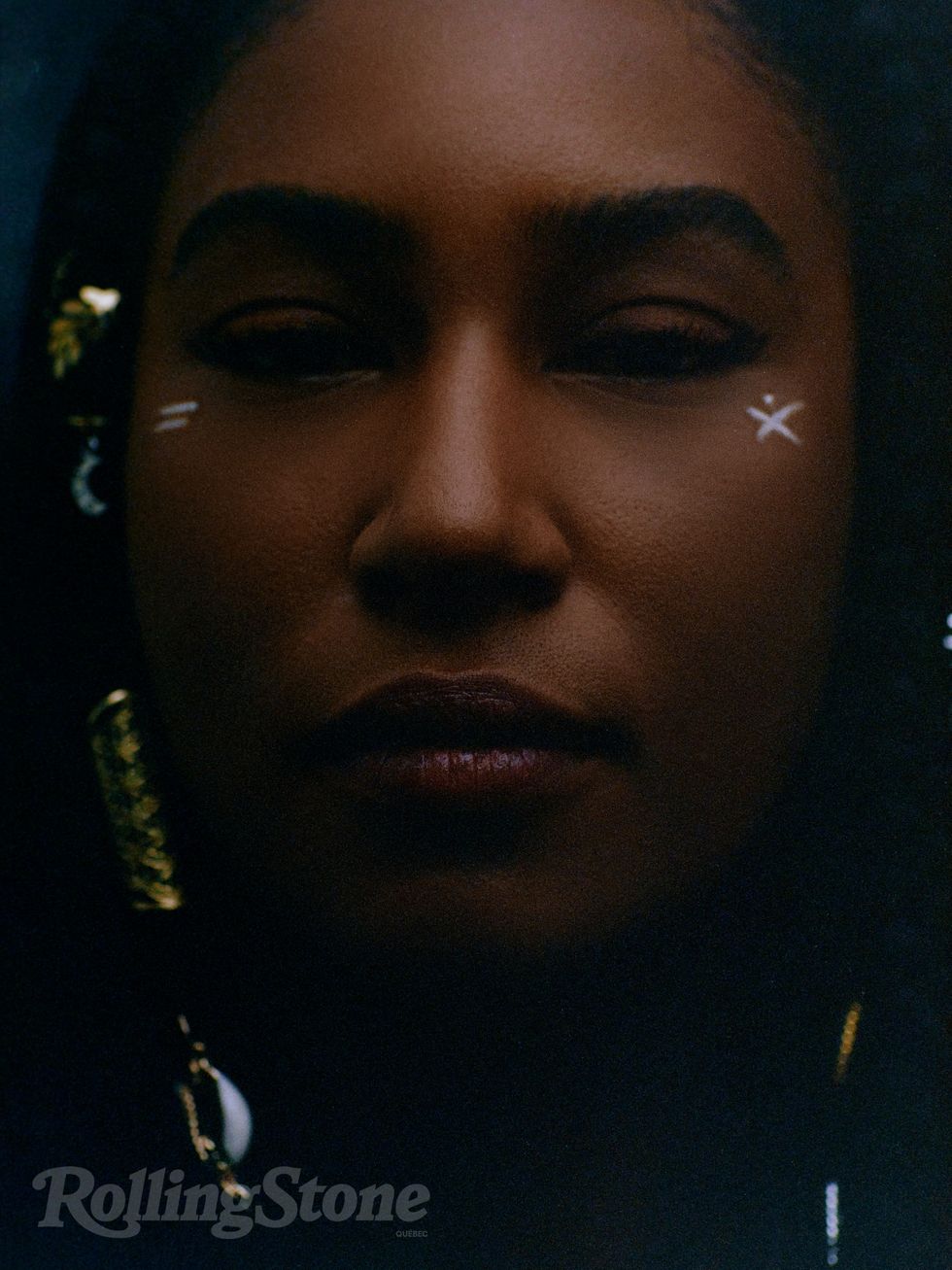 Jewelry: Personal Collection
Jewelry: Personal Collection 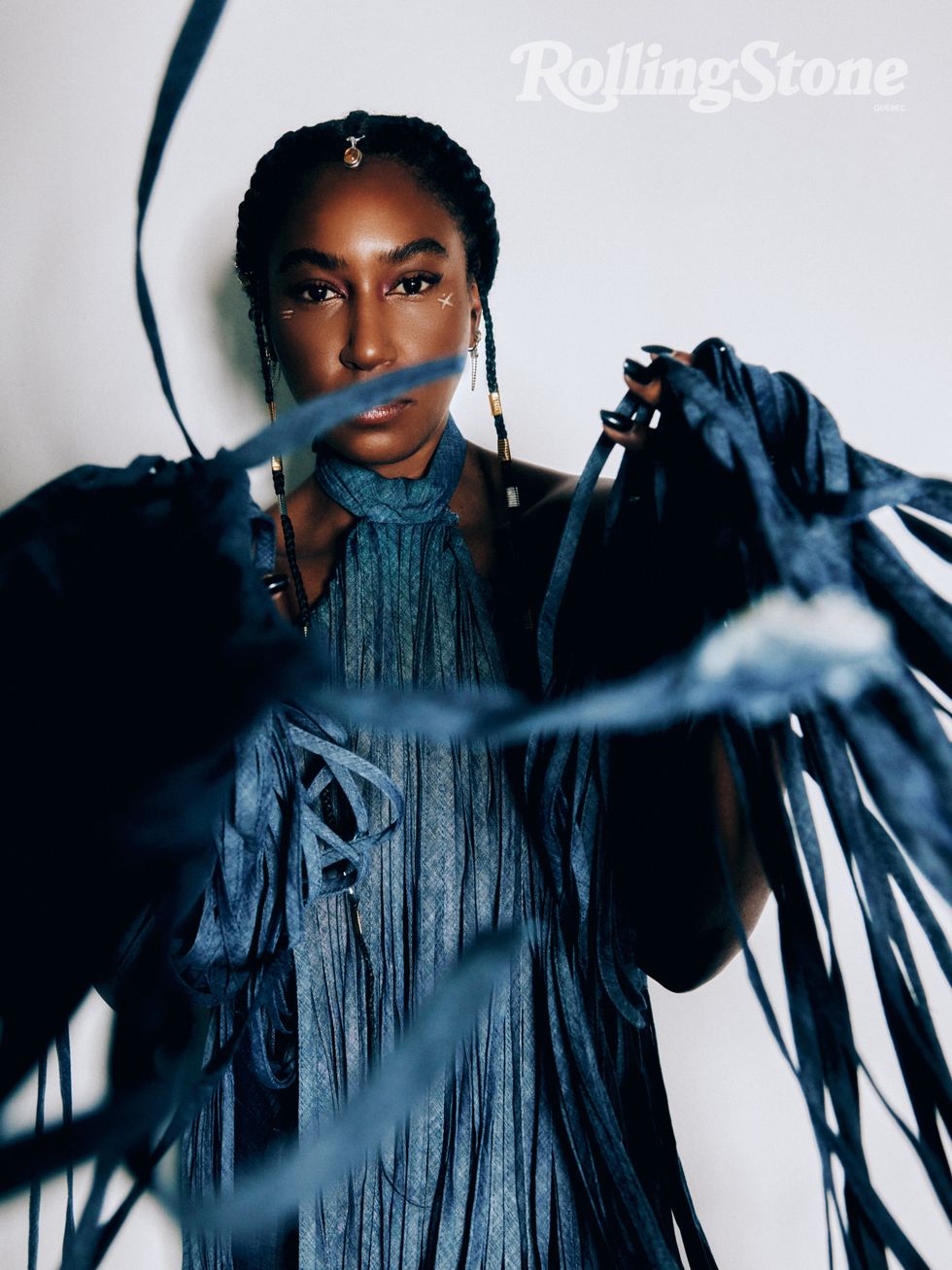 Dress: Helmer/Jewelry: Personal Collection
Dress: Helmer/Jewelry: Personal Collection 
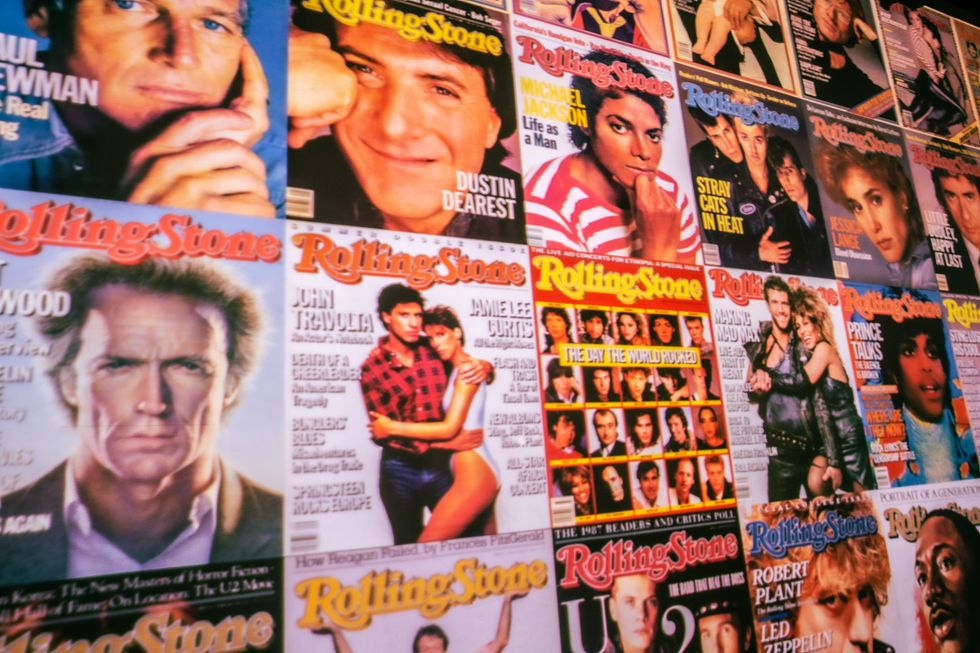
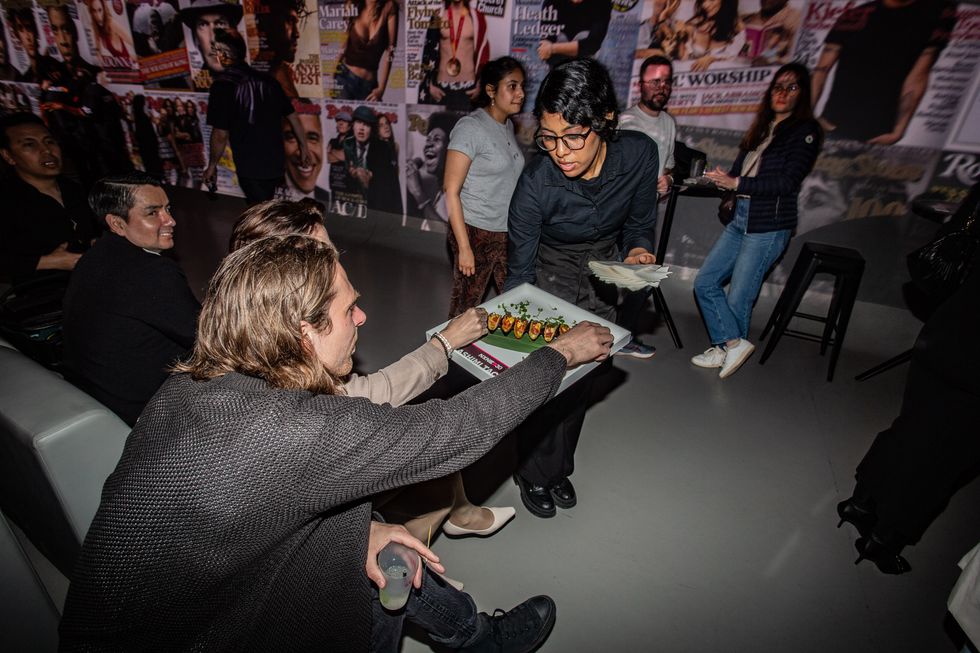 Catering Presented By The Food DudesPhoto by Snapdrg0n
Catering Presented By The Food DudesPhoto by Snapdrg0n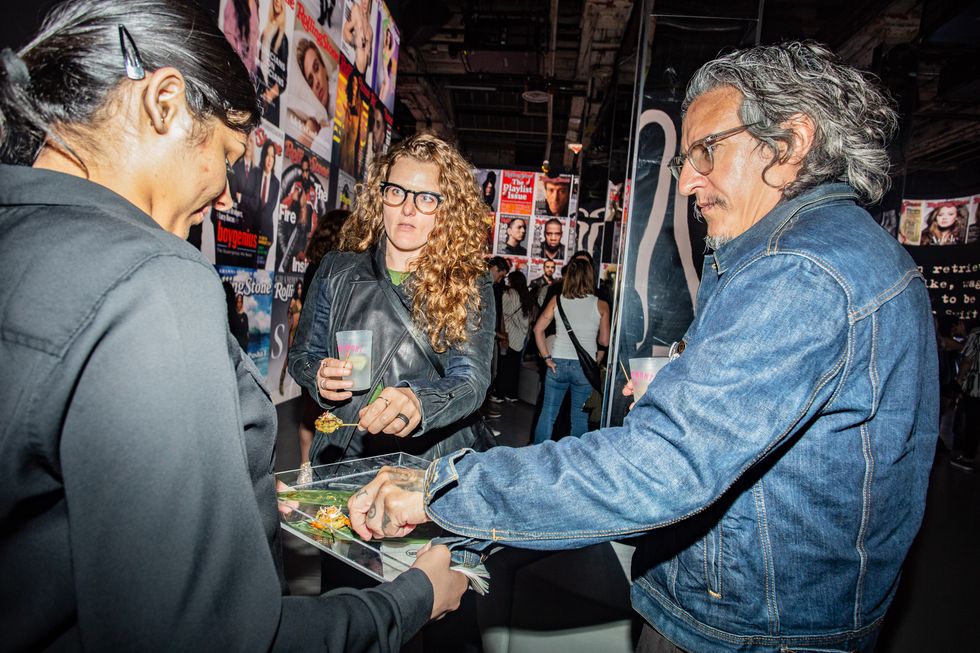 Catering Presented By The Food DudesPhoto by Snapdrg0n
Catering Presented By The Food DudesPhoto by Snapdrg0n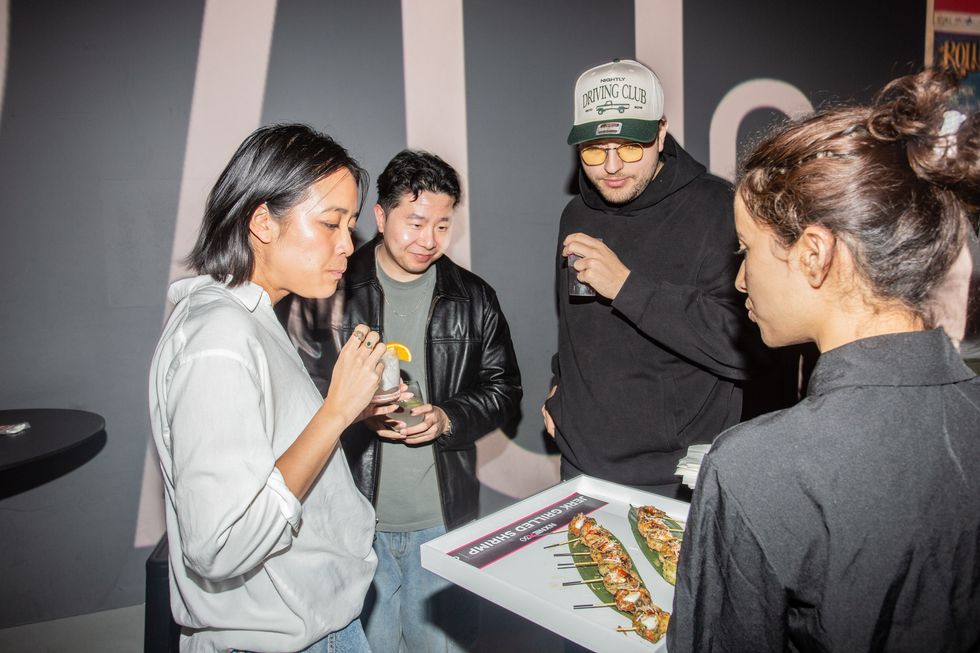 Catering Presented By The Food DudesPhoto by Snapdrg0n
Catering Presented By The Food DudesPhoto by Snapdrg0n
 Photographer: Raphaëlle Sohier / Executive production: Elizabeth Crisante & Amanda Dorenberg / Design: Alex Filipas / Post-production: Bryan Egan/ Headpiece: Tristan Réhel
Photographer: Raphaëlle Sohier / Executive production: Elizabeth Crisante & Amanda Dorenberg / Design: Alex Filipas / Post-production: Bryan Egan/ Headpiece: Tristan Réhel Photo: Raphaëlle Sohier
Photo: Raphaëlle Sohier Photo: Raphaëlle Sohier/ Photo production: Bryan Egan/ Blazer:
Photo: Raphaëlle Sohier/ Photo production: Bryan Egan/ Blazer:  Photo: Raphaëlle Sohier/ Blazer: Vivienne Westwood/ Skirt :
Photo: Raphaëlle Sohier/ Blazer: Vivienne Westwood/ Skirt : 
